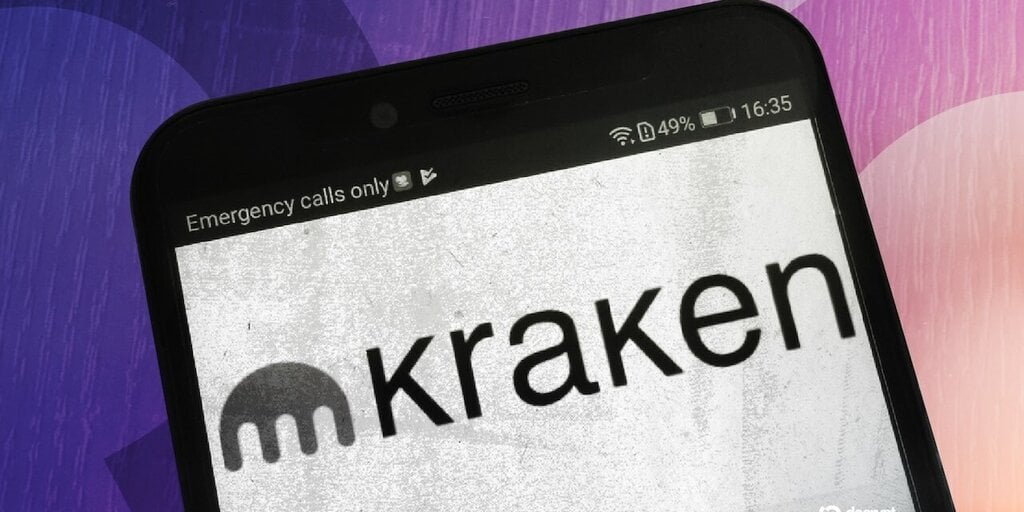In brief
- Kraken’s Brett McLain said the exchange was able to embed its service into neobank bunq’s platform within a matter of weeks.
- Bunq approached Kraken at the “11th hours,” he said.
- The solution could drive user growth as Kraken eyes an initial public offering.
Crypto exchange Kraken is willing to hit some pretty tight deadlines, as the exchange works to elevate its brand and market share through a new business solution dubbed Kraken Embed, according to the company’s Head of Payments and Blockchain Brett McLain.
In an interview with Decrypt, McLain said that Kraken’s recent tie-up with bunq, a Netherlands-based neobank, was the result of a last-minute shift—and a blueprint for how the company could expand its presence through relationships with similar firms, fintechs, and traditional banks.
Bunq was planning on going with another firm for integrating crypto into its platform but turned to Kraken at the “11th hour,” McLain said. The service went live only a few weeks after bunq’s team verbally agreed to it, with limited amounts of engineering needed, he added.
“For a classic neobank to go from having no crypto exposure whatsoever to […] being able to offer […]. 400-plus assets that quickly in Europe, which is a heavily regulated market, is pretty game-changing,” he argued. “That’s what we’re bringing to the table.”
The solution can also help firms save on engineering, regulatory, and legal costs, McLain said. At the same time, Embed allows firms in Europe to offer their customers crypto trading without a license under the EU’s Markets in Crypto Assets Regulation, or MiCA, regime.
Although Kraken faces stiff competition from the likes of Coinbase and Binance in the U.S. and abroad, the exchange’s ability to attract new users through its Embed offering could potentially put it on more even footing, as Kraken reportedly contemplates an initial public offering this year.
For crypto-curious firms, the choice between Kraken and Coinbase could carry new weight, as Coinbase navigates a recently unveiled data breach. CEO Brian Armstrong said this week that some of the exchange’s support agents had been bribed, revealing sensitive user data, including names, addresses, and partial bank details for less than 1% of customers.
Coinbase estimated in a Securities and Exchange Commission filing that the cyberattack could cost the exchange up to $400 million to remedy. Most experts, however, don’t see the incident as an event that could hamstrung the exchange’s growth. And Kraken has experienced security issues before, including a bug last year that allowed a user to “artificially inflate their balance.”
Neobanks and financial technology firms are accustomed to rolling out features fast, while institutions tend to take their time, McLain said. Still, under U.S. President Donald Trump, the crypto industry is anticipating a surge of interest from Wall Street firms as legislative initiatives and regulators look to clarify industry rules in the years to come.
With 17 million users across Europe, bunq’s decision to tap Kraken may extend the exchange’s user base far beyond the 13 million people that “trust” Kraken worldwide. Kraken expects to land more firms of that caliber this year, he said, including potentially in the U.S., Canada, Australia, and UK.
Coinbase offers firms a similar crypto-as-a-service, or CaaS, solution that lets them lean on the exchange’s markets and infrastructure. On Friday, Coinbase announced that online trading platform Webull will leverage its “leading Caas platform,” according to a blog post.
Edited by James Rubin

